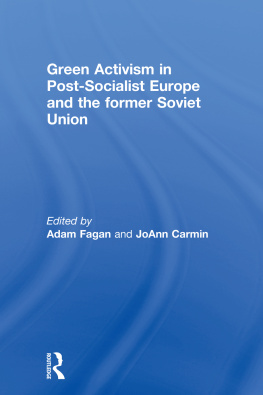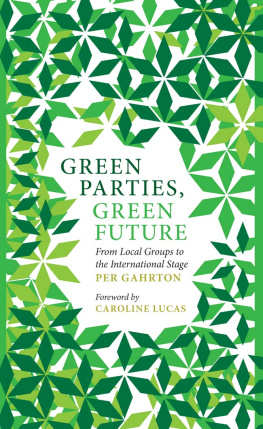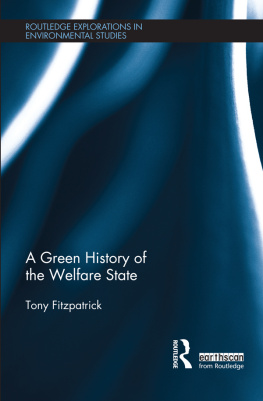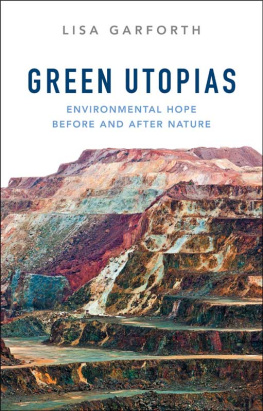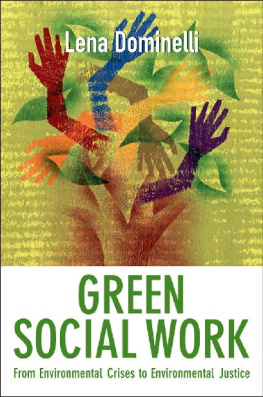Routledge Revivals
The Green Case
First published in 1991, this title provides a comprehensive and objective account of the basis of green arguments and their social and political implications. By the beginning of the 1990s, environmental awareness had become widespread, popular, and fashionable throughout the West, adopted by politicians, manufacturers and advertising agencies. The book sets out to explain why and how the green wave developed, and examines the forces still shaping green politics and policies at an international level. With important implications across the fields of Sociology, Development Studies and Environment and Sustainability, this reissue will be valuable to a broad student and academic readership.
The Green Case
A Sociology of Environmental Issues, Arguments and Politics
Steven Yearley
First published in 1991
by Harper Collins Academic
Reprinted 1992
by Routledge
This edition first published in 2014
by Routledge
2 Park Square, Milton Park, Abingdon, Oxon, OX14 4RN
and by Routledge
711 Third Avenue, New York, NY 10017
Routledge is an imprint of the Taylor & Francis Group, an informa business
1991 Steven Yearley
The right of Steven Yearley to be identified as author of this work has been asserted by him in accordance with sections 77 and 78 of the Copyright, Designs and Patents Act 1988.
All rights reserved. No part of this book may be reprinted or reproduced or utilised in any form or by any electronic, mechanical, or other means, now known or hereafter invented, including photocopying and recording, or in any information storage or retrieval system, without permission in writing from the publishers.
Publisher's Note
The publisher has gone to great lengths to ensure the quality of this reprint but points out that some imperfections in the original copies may be apparent.
Disclaimer
The publisher has made every effort to trace copyright holders and welcomes correspondence from those they have been unable to contact.
ISBN 13: 978-1-138-01716-0 (hbk)
ISBN 13: 978-1-315-78060-3 (ebk)
THE GREEN CASE
A sociology of environmental issues, arguments and politics
Steven Yearley
First published in 1991 by Harper Collins Academic
Reprinted 1992
by Routledge
11 New Fetter Lane, London EC4P 4EE
29 West 35th Street, New York, NY 10001
Steven Yearley 1991
Printed and bound in Great Britain by
Billings & Sons Limited, Worcester
All rights reserved. No part of this book may be reprinted or reproduced or utilized in any form or by any electronic, mechanical, or other means, now known or hereafter invented, including photocopying and recording, or in any information storage or retrieval system, without permission in writing from the publishers.
British Library Cataloguing in Publication Data
Yearley, Steven
The green case: a sociology of environmental issues, arguments and politics.
1. Environment, Sociopolitical aspects
I. Title
304.2
Library of Congress Cataloging in Publication Data
Yearley, Steven.
The green case: a sociology of environmental issues, arguments, and politics / Steven Yearley.
p. cm.
Includes bibliographical references and index.
1. Green movement. 2. Environmental policy. 3. MarketingSocial aspects. 4. Economic developmentEnvironmental aspects.
I. Title
JA75.8.Y43 1991
322.4'4dc20
90-45469
ISBN 0-415-08381-8
Contents
I would like to record my thanks to several people who helped me during the writing of this book. I received a great deal of patient assistance from staff in the library at Queen's University Belfast, notably the periodicals librarians, the inter-library loans staff and Nigel Butterwick. My initial research on scientific expertise and scientific authority in the green movement was supported by the Science Policy Support Group (SPSG) and the Economic and Social Research Council; I would like to thank the staff of SPSG and the other participants in the programme on the Public Understanding of Science for their support and friendship during that research. Many thanks are also due to the people in the environmental movement who explained things to me, welcomed me into their meetings and showed me round their nature reserves. Lastly, my thanks go to my colleague Steve Bruce who read much of this book in draft and who offered me a great deal of sound sociological advice.
INTRODUCTION
Studying the green case
By the end of the 1980s environmental awareness had become widespread, popular and fashionable throughout the Western world. In Eastern Europe the environmental cause had become closely identified with movements campaigning for a reduction in the power of the state. This confluence is perhaps best expressed in the name of the Bulgarian environmental protest group 'Ecoglasnost' ( Guardian 2 November 1989, p. 7). It is now good to be 'green'. The environment is suddenly on everybody's agenda: it has been adopted by politicians, by manufacturers, by teachers, by advertising agencies and by publishers. This book sets out to explain why the 'green wave' has started rolling now and to examine the forces shaping the future of green politics and policies on an international scale.
Politicians seldom act without thought of electoral advantage so the scramble by parties of right and left to display their policies as environmentally friendly stands as testimony to the perceived public interest in the environment. In Britain, probably the most conspicuous reflection of this interest was the pair of speeches made in late September and early October 1988 by the Conservative Prime Minister, Margaret Thatcher. In these two addresses, one to the Royal Society (the UK's foremost scientific society), the other to the Conservative Party Conference, she sought to align Tory traditionalism with conservation. Labour politicians responded by emphasizing the link between their penchant for social interventionism and the kinds of regulation needed to protect the environment. Seemingly incontestable evidence of growing public enthusiasm was also supplied by the electoral performance of the UK's Green Party in the 1989 Being seen as reasonably 'green' is an increasingly successful political strategy.
Sensitive to public opinion as they may be, politicians are not quite as responsive as people who have to court the public on a day-by-day basis, including the media and advertisers. Advertising agencies' attempts to win the 'green consumer' are a rich resource for the analyst of changing social attitudes, both because their work has to be arresting and attractive in its own right, and because advertisements often carry a heavy burden of implicit meanings or connotations. Humorous treatments of environmental issues quickly appeared: the British motor company Vauxhall (a subsidiary of General Motors) sought to cash in on two fashions of 1989 by describing its convertible model as 'lid free'. Soft tops were in vogue as were campaigns to promote the use of lead-free petrol; the slogan marries the fashions.


